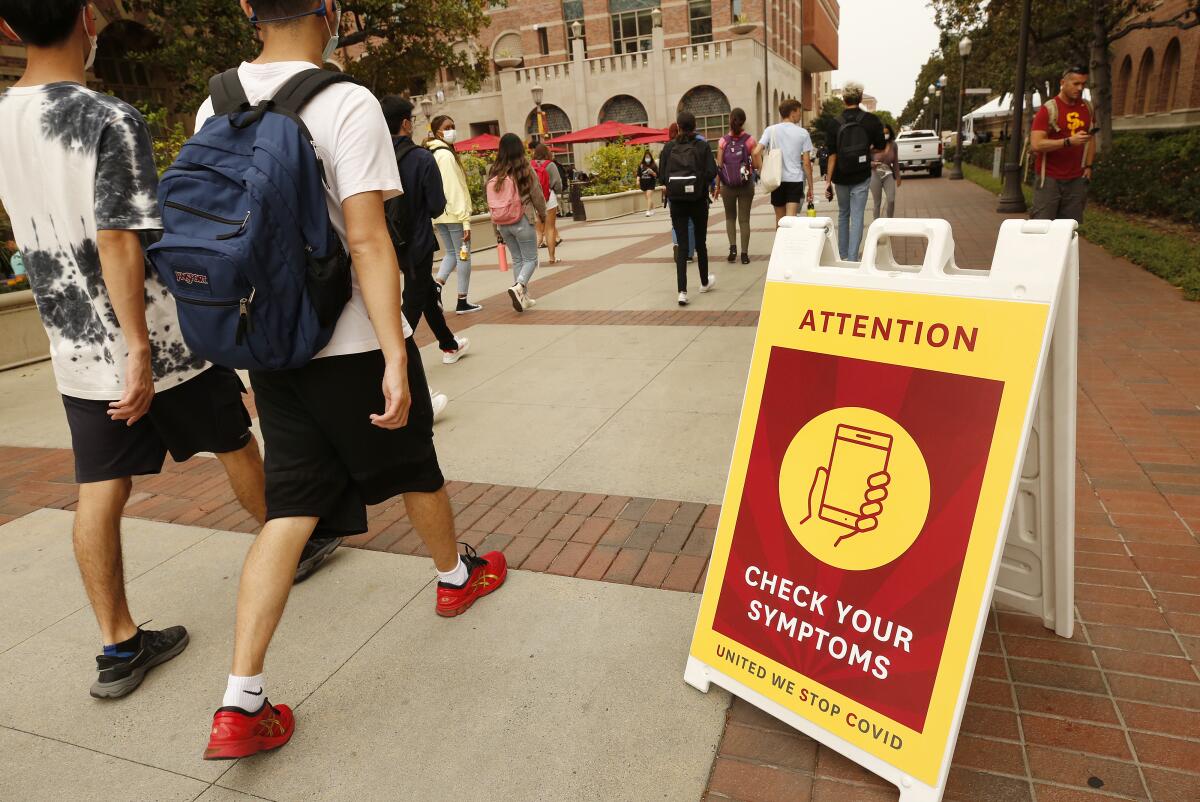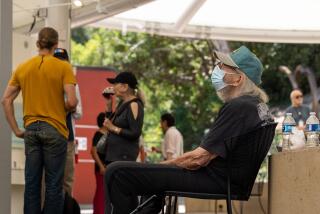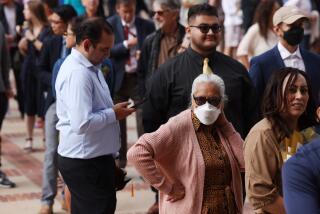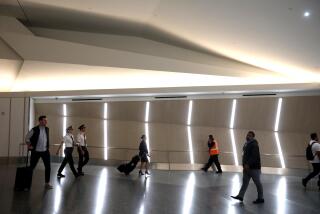Unvaccinated people, riskier behavior: What is fueling L.A.’s coronavirus surge

More evidence is emerging this week underscoring the effectiveness of COVID-19 vaccines against the Delta variant of the coronavirus.
A new Centers for Disease Control and Prevention study found that more than 71% of coronavirus infections between May 1 and July 25 in Los Angeles County were among the unvaccinated, compared with about 25% among fully vaccinated people, and about 3% among the partially vaccinated.
The study found that unvaccinated people accounted for five times more infections and 29 times more hospitalizations than their fully vaccinated peers on July 25.
There are also signs that unvaccinated people tend to engage in behaviors that are more likely to spread the coronavirus, while vaccinated people more often take actions that reduce transmission risk.
A study conducted by USC in collaboration with the L.A. County Department of Public Health found that, in a cohort of 1,200 adults, unvaccinated people were more likely to go out to bars and clubs, visit friends and family at home and attend gatherings, while vaccinated people were more likely than unvaccinated people to wear face masks and avoid large gatherings or shaking hands.
The analysis
Eric Topol, a professor of molecular medicine at the Scripps Research Translational Institute in La Jolla, said the CDC study is significant because it is among the first to examine the efficacy of the vaccines against the Delta variant, particularly in a county as large as Los Angeles County.
“The way you interpret the data is both that breakthroughs [cases in vaccinated people] have increased infections — no question — but that during that phase of Delta, the vaccine benefit has grown in great magnitude,” Topol said. “The benefit of the vaccine is like 30 times, where it was two times or three times before Delta.”
Compared with partially vaccinated and unvaccinated people, much lower percentages of fully vaccinated people infected with COVID-19 were hospitalized, admitted to an intensive care unit or required mechanical ventilation, according to the study.
Researchers said the findings indicated that the vaccines were protective against infection and severe COVID-19 even during a period when transmission of the Delta variant was increasing.
“On the hospitalization side, the protection is very solid still,” Topol said. “The vaccination benefit is striking, more than ever.”
Going forward
Experts have emphasized the importance of vaccinating as many people as possible and continuing to wear masks to prevent further spread of the virus. The Delta variant is highly transmissible, and a fall surge driven by waning immunity and more time spent indoors is still a possibility.
There are some signs the latest surge in California is slowing.
But the Delta spike leaves California in a precarious position.
Dr. Peter Chin-Hong, a professor of medicine and infectious disease specialist at UC San Francisco, said the current numbers are still some of the highest since the devastating fall and winter surge.
“It’s like walking on a tight-wire rope at a high level, so if we fall, we could fall hard,” Chin-Hong said.
Vaccination numbers
To date, nearly 65% of L.A. County residents have gotten at least one dose of the vaccine, and 56.5% are fully vaccinated, according to The Times tracker.
Unvaccinated older adults — age 50 and above — are 12 times more likely to be hospitalized than their vaccinated counterparts, and unvaccinated younger adults are 25 times more likely to be hospitalized than those who are fully vaccinated in that age group.
“If you’re unvaccinated, you’ve got a lot of risk — a lot of risk of being in the hospital and a lot of risk [of] dying,” said L.A. County Public Health Director Barbara Ferrer. “And that includes younger people who are unvaccinated as well as older people, who always have more risk with this virus for having a bad outcome.”
Vaccination enforcement
Hospitals in recent weeks have described unsustainable conditions amid a surge fueled by the Delta variant, and county officials are hoping that Monday’s landmark approval of the Pfizer-BioNTech COVID-19 vaccine could lead to a wave of vaccinations — either through more mandates or by encouraging some who are vaccine-hesitant to get their shots.
“The COVID-19 vaccine is safe and remains the most powerful tool we have to both lower our risk of infection and protect against serious illness and death from COVID-19 if infected,” L.A. County health officer Dr. Muntu Davis said, adding: “We are grateful to the many scientists and researchers who have worked tirelessly to develop and evaluate the vaccines during the most challenging public health crisis of our lifetime.”
The Pfizer vaccine is the first of the three available COVID-19 vaccines in the U.S. to receive FDA approval.
All three vaccines, including those from Moderna and Johnson & Johnson, were operating under an emergency use authorization. Monday’s FDA approval of the Pfizer vaccine applies only to people 16 and older, although more approvals are expected in the weeks to come.
More to Read
Sign up for Essential California
The most important California stories and recommendations in your inbox every morning.
You may occasionally receive promotional content from the Los Angeles Times.












